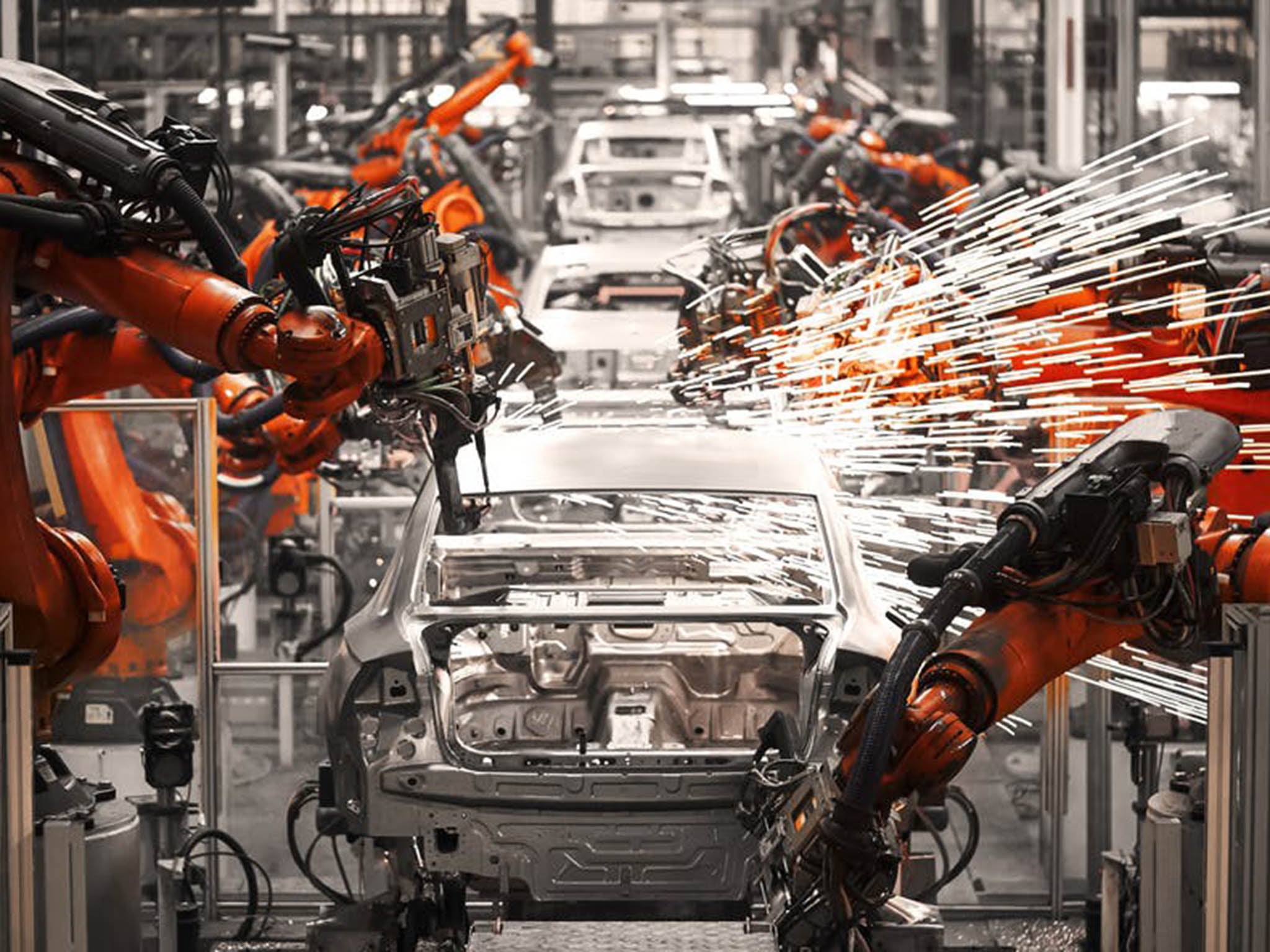UK car production plummets 45% as factories shut down amid Brexit turmoil
Industry is being undermined by 'incompetent government and its threats of a no deal', says trade body

Your support helps us to tell the story
From reproductive rights to climate change to Big Tech, The Independent is on the ground when the story is developing. Whether it's investigating the financials of Elon Musk's pro-Trump PAC or producing our latest documentary, 'The A Word', which shines a light on the American women fighting for reproductive rights, we know how important it is to parse out the facts from the messaging.
At such a critical moment in US history, we need reporters on the ground. Your donation allows us to keep sending journalists to speak to both sides of the story.
The Independent is trusted by Americans across the entire political spectrum. And unlike many other quality news outlets, we choose not to lock Americans out of our reporting and analysis with paywalls. We believe quality journalism should be available to everyone, paid for by those who can afford it.
Your support makes all the difference.The number of cars built in the UK in April plummeted by almost half compared with a year ago, figures reveal.
Just under 71,000 cars rolled off production lines in the month, a fall of 44.5 per cent, as factories shut across the country at the end of March during Brexit uncertainty, said the Society of Motor Manufacturers and Traders (SMMT).
Manufacturing for domestic and overseas markets fell by 43.7 per cent and 44.7 per cent respectively as most carmakers brought forward, and extended, production stoppages normally scheduled for the summer holiday period.
The SMMT said the shifted shutdown dates, which cannot now be repeated for the 31 October Brexit deadline, were part of a raft of “costly and ongoing” contingency measures, including stockpiling, training for new customs procedures and rerouting of logistics.
The report said April's “dismal” performance, the 11th straight month of decline, exacerbated the underlying downward trend.
Manufacturing is slowing largely because of falling demand in key international markets, including the EU, China and the US, as well as at home.
In the year to date, 127,240 fewer cars have been built compared with the same period in 2018 – a decline of more than a fifth.
The SMMT said that, provided the UK leaves the EU with a favourable deal and substantial transition period, and notwithstanding any escalation of global trade tensions, the decline in volumes is expected to ease by the end of the year, as new models arrive and production lines remain active over the usual summer shutdown months.
SMMT chief executive Mike Hawes said: “Today's figures are evidence of the vast cost and upheaval Brexit uncertainty has already wrought on UK automotive manufacturing businesses and workers.
“Prolonged instability has done untold damage, with the fear of no deal holding back progress, causing investment to stall, jobs to be lost and undermining our global reputation.
“This is why no deal must be taken off the table immediately and permanently, so industry can get back to the business of delivering for the economy and keeping the UK at the forefront of the global technology race.”
Rebecca Long Bailey, the shadow business secretary, said: “These alarming figures which show output halving are stark warnings of what could come from a hard right Tory leader crashing the UK out of Europe with no deal.
“The UK car industry is being undermined by this incompetent government and its threats of a no deal.
“Their mishandling of Brexit has created prolonged uncertainty, and they have simply failed to engage with the domestic challenges facing the industry, such as electrification.
“The industry needs certainty and the government must work with trade unions to produce a long term strategy for the sector.”
A Department of Business spokesperson said: “A number of large automotive manufacturers did see planned production shutdowns during this period.
“The government wants to see the UK automotive sector continue to grow and attract further investment. Through our modern Industrial Strategy we continue to invest in the future of our automotive industry, including £1bn for research and development into cleaner vehicles, and the Faraday Battery Challenge to develop the next generation of car battery technologies in the UK.”
PA
Join our commenting forum
Join thought-provoking conversations, follow other Independent readers and see their replies
0Comments